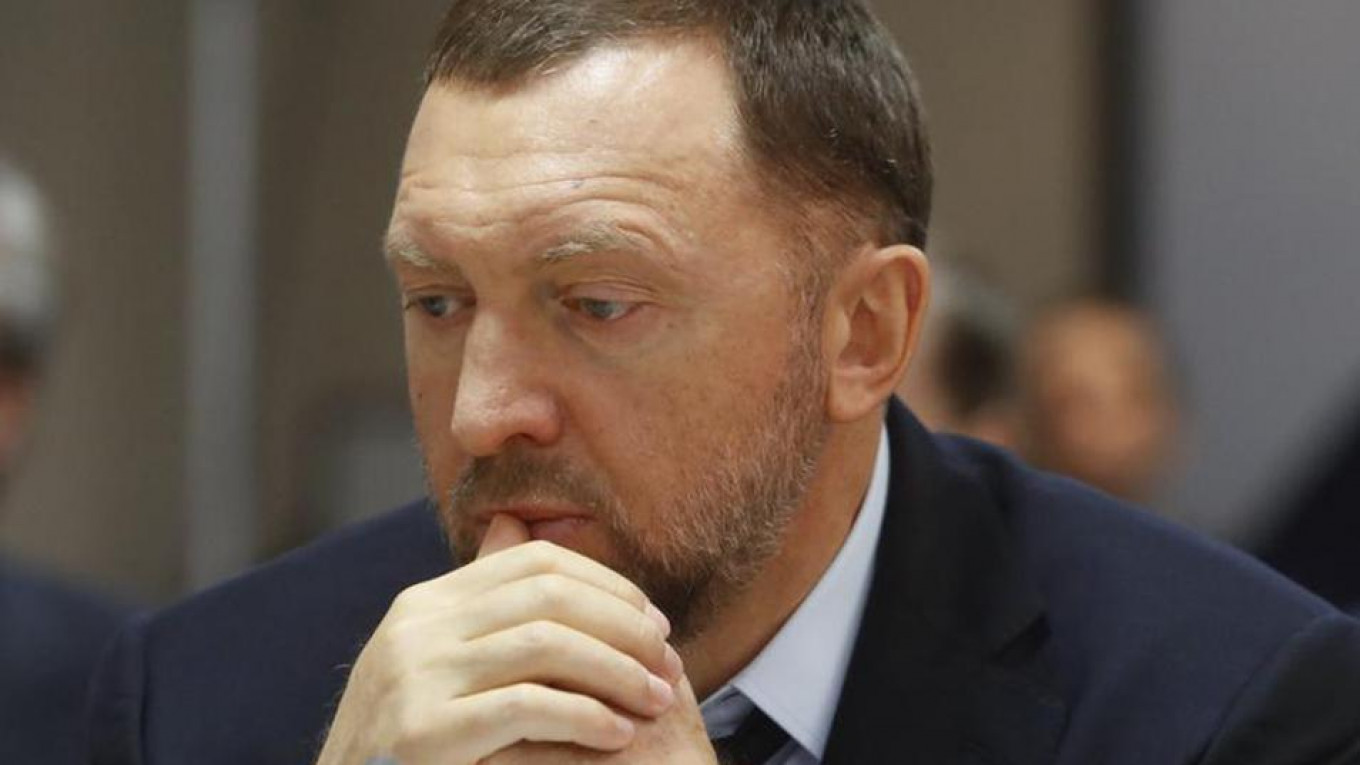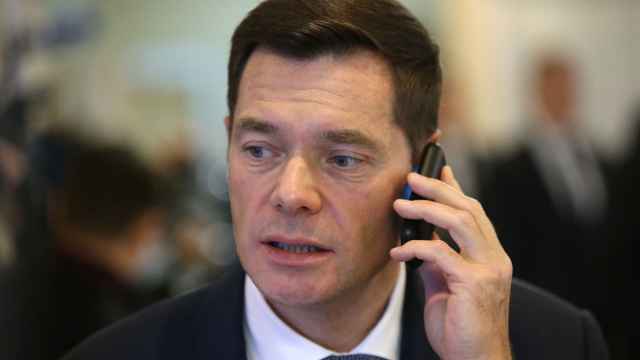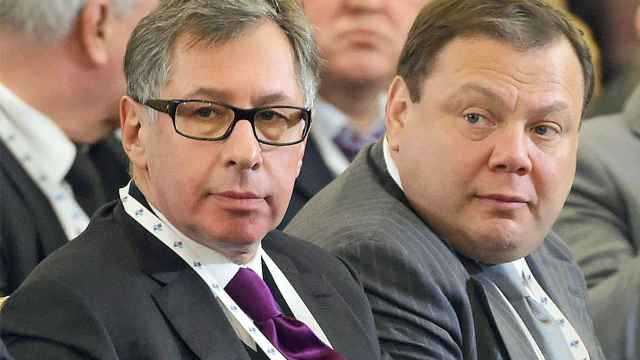The head of Russia's second-largest banking group, VTB, has said that the bank has stopped providing new loans to tycoon Oleg Deripaska after the latest round of U.S. sanctions.
The United States imposed sanctions on Deripaska, his companies and other Russian businessmen in April in response to alleged meddling in the 2016 presidential election and other “malign activities.” Since then, Deripaska has moved to reduce his role in the companies that he manages, including resigned from the board of Rusal, Russia's largest aluminum producer, to alleviate sanctions pressure.
“Of course we are not lending any new money to him, we are not having any operations with him, with Rusal and other[s],” VTB president Andrei Kostin told the CNBC business outlet Wednesday.
VTB would “potentially” cease lending to other Russian tycoons targeted by U.S. sanctions, Kostin said.
His comments come a week after Russian lawmakers postponed the second reading of a bill that would make it a crime to comply with Western sanctions against Russia.
The State Duma draft bill would introduce jail time of up to four years in jail for individuals who refuse to supply services or do business with Russian citizens under U.S. or other sanctions.
Business lobby groups who oppose the original draft bill proposed an amendment to impose fines rather than jail time for those who comply with sanctions, Interfax quoted first deputy speaker Ivan Melnikov as saying after the first round of talks Wednesday.
“Russian citizens should be punished for active assistance and incitement toward imposing sanctions,” Melnikov was quoted as saying, adding that “a number of loopholes have to be made to avoid punishment for those officials who act in insurmountable circumstances.”
A Message from The Moscow Times:
Dear readers,
We are facing unprecedented challenges. Russia's Prosecutor General's Office has designated The Moscow Times as an "undesirable" organization, criminalizing our work and putting our staff at risk of prosecution. This follows our earlier unjust labeling as a "foreign agent."
These actions are direct attempts to silence independent journalism in Russia. The authorities claim our work "discredits the decisions of the Russian leadership." We see things differently: we strive to provide accurate, unbiased reporting on Russia.
We, the journalists of The Moscow Times, refuse to be silenced. But to continue our work, we need your help.
Your support, no matter how small, makes a world of difference. If you can, please support us monthly starting from just $2. It's quick to set up, and every contribution makes a significant impact.
By supporting The Moscow Times, you're defending open, independent journalism in the face of repression. Thank you for standing with us.
Remind me later.






